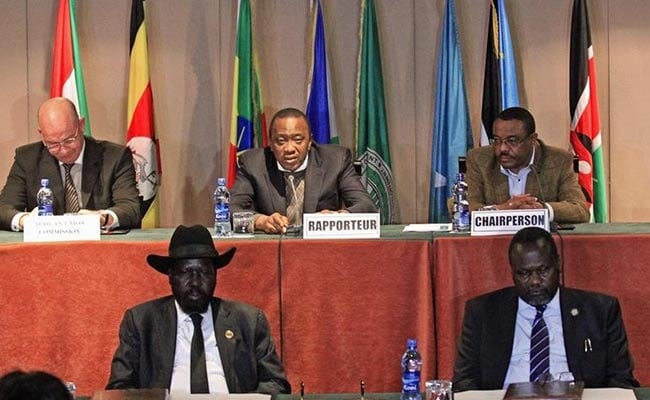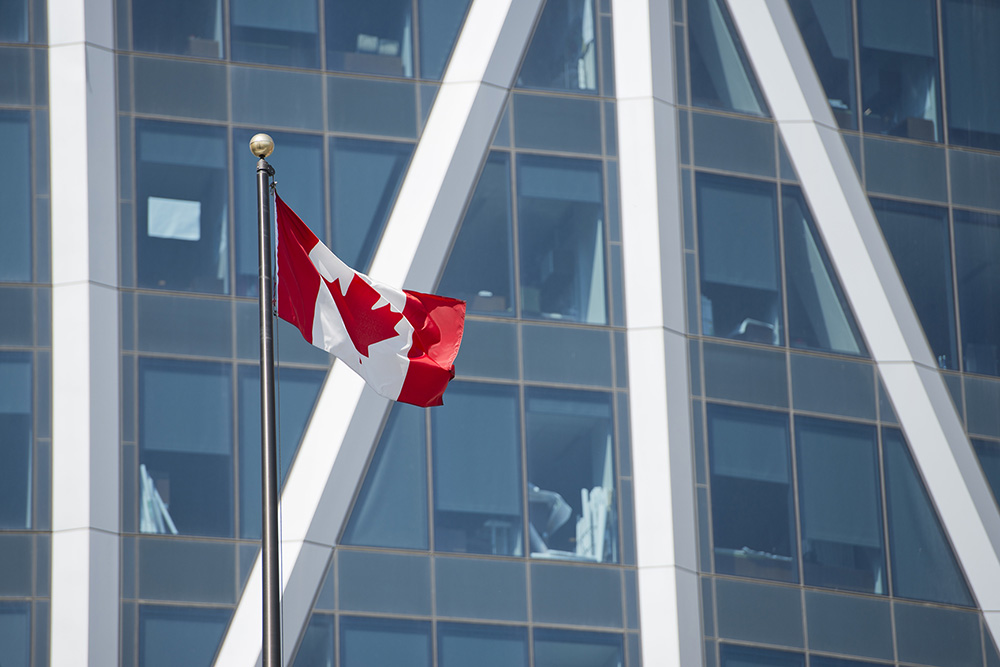The Collapse Of Putin's Peace Talks: A Diplomatic Assessment

Table of Contents
Unrealistic Demands and Lack of Good Faith Negotiation
The failure of the peace talks can be largely attributed to a fundamental lack of good faith negotiation, characterized by unrealistic demands from Russia and unwavering resolve from Ukraine, backed by its international allies.
Russia's Preconditions: A Recipe for Failure
Russia's initial demands were, from the outset, unrealistic and uncompromising, signaling a lack of genuine commitment to a peaceful resolution. These preconditions effectively precluded any meaningful negotiation.
- Territorial Concessions: Russia demanded significant territorial concessions from Ukraine, far exceeding any internationally recognized boundaries. This blatant disregard for Ukrainian sovereignty immediately undermined any chance of compromise.
- Regime Change in Ukraine: The demand for a regime change in Kyiv, effectively dictating the composition of Ukraine's government, was an unacceptable infringement on Ukraine's self-determination. This aggressive demand demonstrated a clear intent to subjugate Ukraine.
- Demilitarization Demands Beyond International Norms: Russia's demilitarization demands went far beyond what is considered acceptable under international law, effectively aiming to disarm Ukraine and leave it vulnerable to further aggression.
These unrealistic demands, coupled with Russia's continued aggression, illustrated a strategy prioritizing conquest over compromise, making any meaningful negotiation impossible.
Ukraine's Position and International Support: A Foundation of Resilience
In contrast to Russia's intransigence, Ukraine maintained a steadfast position centered on its territorial integrity, self-determination, and accountability for war crimes committed by Russia. This position was significantly strengthened by unwavering support from Western allies.
- Emphasis on Territorial Integrity: Ukraine consistently emphasized the importance of preserving its internationally recognized borders, rejecting any territorial concessions to Russia.
- Self-Determination: Ukraine resolutely defended its right to self-determination, rejecting any attempts to impose a regime change or dictate its internal political affairs.
- Accountability for War Crimes: Ukraine insisted on holding Russia accountable for its atrocities, including war crimes and crimes against humanity, demanding justice for the victims of the conflict.
This unified stance, coupled with the significant military and financial aid provided by Western allies, solidified Ukraine's negotiating position and dramatically reduced the leverage of Russia's demands. The international community's condemnation of Russia's actions further isolated Moscow, hindering any potential for a negotiated settlement.
Escalation of Hostilities and Military Gains/Losses: Shifting Sands of Diplomacy
The ongoing military conflict significantly impacted the diplomatic landscape, making compromise increasingly difficult. The fluctuating balance of power on the battlefield directly influenced both sides’ willingness to negotiate.
The Impact of Military Actions: A Zero-Sum Game
Military actions, both offensive and defensive, played a crucial role in shaping the diplomatic environment. Each significant military gain or loss shifted the perceived leverage of the parties involved.
- Russian Advances: Initial Russian advances, while ultimately failing to achieve their objectives, emboldened some within Russia to demand more concessions from Ukraine.
- Ukrainian Counteroffensives: Conversely, successful Ukrainian counteroffensives, reclaiming territory previously occupied by Russian forces, strengthened Ukraine's resolve and diminished Russia's leverage at the negotiating table.
The dynamic nature of the military conflict created a context where compromises felt like unacceptable losses, hindering the progress of negotiations.
The Role of Information Warfare and Propaganda: Poisoning the Well
The pervasive use of disinformation and propaganda by both sides poisoned the diplomatic atmosphere, making trust and compromise extremely challenging.
- Disinformation Campaigns: Both Russia and Ukraine employed sophisticated disinformation campaigns to manipulate public opinion and discredit their opponent, further polarizing the conflict and undermining any potential for dialogue.
- Propaganda War: The relentless propaganda war made it difficult for negotiators to find common ground, as each side's perceptions of the other were heavily distorted by biased narratives.
This information warfare effectively created an environment of mistrust, severely hampering the potential for genuine dialogue and compromise.
Internal Political Factors and Shifting Alliances: Domestic and International Pressures
Internal political dynamics within Russia, as well as the actions of international actors, also played a critical role in the collapse of Putin's Peace Talks.
Domestic Pressure on Putin: A Balancing Act
Internal political pressures within Russia influenced Putin's decision-making regarding negotiations.
- Hardline Factions: The presence of powerful hardline factions within the Russian government, opposed to any concessions to Ukraine, likely constrained Putin's willingness to compromise.
- Public Opinion within Russia: While difficult to gauge accurately due to censorship and propaganda, public opinion within Russia likely influenced the government's approach to the negotiations.
These domestic pressures may have forced Putin to adopt a more uncompromising stance, making concessions politically untenable.
The Influence of International Actors: Amplifying the Divide
The actions of international actors, particularly NATO and the EU, significantly influenced the dynamics of the peace process.
- Sanctions: The imposition of widespread sanctions against Russia, aimed at crippling its economy, put immense pressure on the Russian government but also hardened their stance.
- Military Aid: The substantial military aid provided to Ukraine by Western allies strengthened Ukraine’s military capacity and resolve, making concessions less likely.
- Diplomatic Pressure: International diplomatic pressure on Russia to de-escalate the conflict and engage in meaningful negotiations further complicated the situation.
The actions of these international actors, while aimed at supporting Ukraine, unintentionally may have hardened the positions of both sides, contributing to the failure of the peace talks.
Conclusion
The collapse of Putin's peace talks represents a significant setback for diplomatic efforts to resolve the conflict in Ukraine. This analysis points to a complex interplay of factors—unrealistic demands, escalating hostilities, information warfare, and internal and external political pressures—all contributing to this failure. The future of peace negotiations remains uncertain, highlighting the need for a renewed diplomatic strategy that addresses the root causes of the conflict and prioritizes a negotiated settlement. Further research into the dynamics of Putin's Peace Talks Collapse is crucial for understanding the trajectory of this devastating conflict and for informing future diplomatic initiatives. A thorough understanding of the failed negotiations is essential to preventing further escalations and achieving lasting peace in Ukraine. Continued attention to the intricacies of Putin's Peace Talks Collapse is vital for charting a path towards a peaceful resolution.

Featured Posts
-
 Alleged Drug Smuggling American Basketball Player Arrested In Indonesia Death Penalty A Threat
May 18, 2025
Alleged Drug Smuggling American Basketball Player Arrested In Indonesia Death Penalty A Threat
May 18, 2025 -
 Voyager Technologies Files For Public Offering A New Era In Space Defense
May 18, 2025
Voyager Technologies Files For Public Offering A New Era In Space Defense
May 18, 2025 -
 Students Ai Research Paper Faces Mit Retraction
May 18, 2025
Students Ai Research Paper Faces Mit Retraction
May 18, 2025 -
 The Ultimate Taylor Swift Album Ranking From Worst To Best
May 18, 2025
The Ultimate Taylor Swift Album Ranking From Worst To Best
May 18, 2025 -
 Will Canadian Tires Acquisition Of Hudsons Bay Pay Off A Comprehensive Analysis
May 18, 2025
Will Canadian Tires Acquisition Of Hudsons Bay Pay Off A Comprehensive Analysis
May 18, 2025
Latest Posts
-
 Kanye Wests Funeral Instructions Inspired By Pasha Technik
May 18, 2025
Kanye Wests Funeral Instructions Inspired By Pasha Technik
May 18, 2025 -
 Did They Split Kanye West And Bianca Censori Dine Together In Spain
May 18, 2025
Did They Split Kanye West And Bianca Censori Dine Together In Spain
May 18, 2025 -
 Pokhorony Po Uestovski Vdokhnovenie Ot Pashi Tekhnikom
May 18, 2025
Pokhorony Po Uestovski Vdokhnovenie Ot Pashi Tekhnikom
May 18, 2025 -
 Instruktsiya Kane Uesta K Sobstvennym Pokhoronam Vdokhnovenie Ot Pashi Tekhnikom
May 18, 2025
Instruktsiya Kane Uesta K Sobstvennym Pokhoronam Vdokhnovenie Ot Pashi Tekhnikom
May 18, 2025 -
 Kanye West Bianca Censori Enjoy Dinner Date In Spain Amidst Relationship Speculation
May 18, 2025
Kanye West Bianca Censori Enjoy Dinner Date In Spain Amidst Relationship Speculation
May 18, 2025
